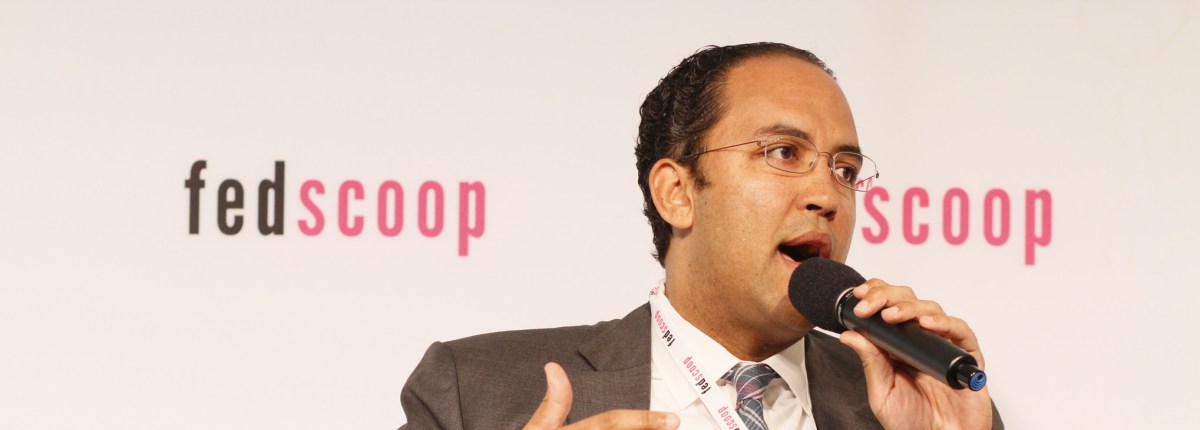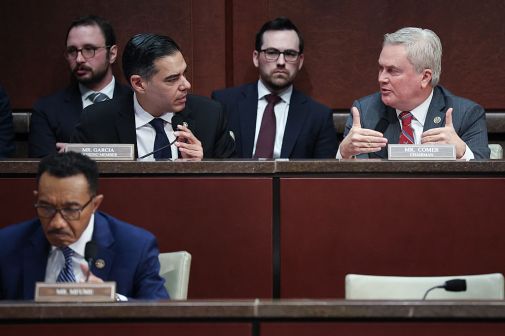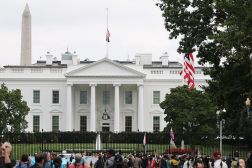Modernization bill gets new $500M price tag prior to House vote

This story has been updated with comment from Rep. Will Hurd.
The re-introduced Modernizing Government Technology Act is estimated to cost a fraction of what it was when first introduced late last year, giving it a much better shot of passing this time around.
The Congressional Budget Office issued a cost estimate of $500 million over a five-year window for the legislation by Rep. Will Hurd, R-Texas.
“The lower score actually reflects what the bill is going to do,” Hurd told FedScoop Monday, adding his confidence that it will pass the House and Senate this go around.
After its first introduction in 2016, when the bill passed in the House before stalling in the Senate, MGT received a $9 billion CBO cost estimate over five years, which destroyed the hope it would reach the president’s desk before the end of the Congress.
Hurd will take the updated MGT act, co-sponsored by Reps. Robin Kelly, D-Ill., and Gerry Connolly, D-Va., to the House floor for vote Wednesday, his office told FedScoop.
The re-introduced bill is the same as its predecessor in that it proposes allowing agencies to put money they have saved with IT into working capital funds, which can be accessed for up to three years, to fund future efforts to modernize their technology. It also calls again for the creation of a centralized fund agencies can tap into for modernization.
The latest iteration, however, caps the amount that can go in the centralized fund for year one and year two at $250 million per year, Hurd told FedScoop in April. According to the CBO, that money would go directly to the establishment of the centralized tech modernization fund and a “Tech Modernization Board” — an eight-member board whose purpose would be “to help improve information technology and cybersecurity systems across the government.”
“[The Government Accountability Office] has had a number of conversations with CBO on talking about modernization, and how GAO has seen modernization work in other instances, to help with CBO’s understanding of how the bill actually saves the federal government money,” Hurd said.
Hurd said Monday engagement with the CBO and the changes in the bill had him hopeful the price tag would be much lower this time.
“What changed is the engagement with CBO and helping to understand how they made their decisions,” he said. “So this really was a process making sure we understood how CBO was looking at the legislation and they understood what we were doing, and I think it worked out for the better.”
While the funding dedicated to the centralized fund is significantly decreased in the newer bill, Hurd called that portion of the bill the “potatoes,” whereas “the meat is the working capital fund and giving that as a tool.”
The new score — along with support from the Office of American Innovation, which “helped give us a lot of insights on how they want to use this tool and how they expect their CIOs to use this tool” — is “going to help it pass,” he said.
Likewise a strong companion bill authored by Sens. Jerry Moran, R-Kan., and Tom Udall, D-N.M., has Hurd hopeful the legislation will have smooth sailing in the Senate.
“[The budget estimate] is something that we had to deal with,” he said. “We’ve been working with [Senate] appropriators over there to help them get comfortable with this.”
“I feel good that we’re moving in the right direction,” Hurd said.






